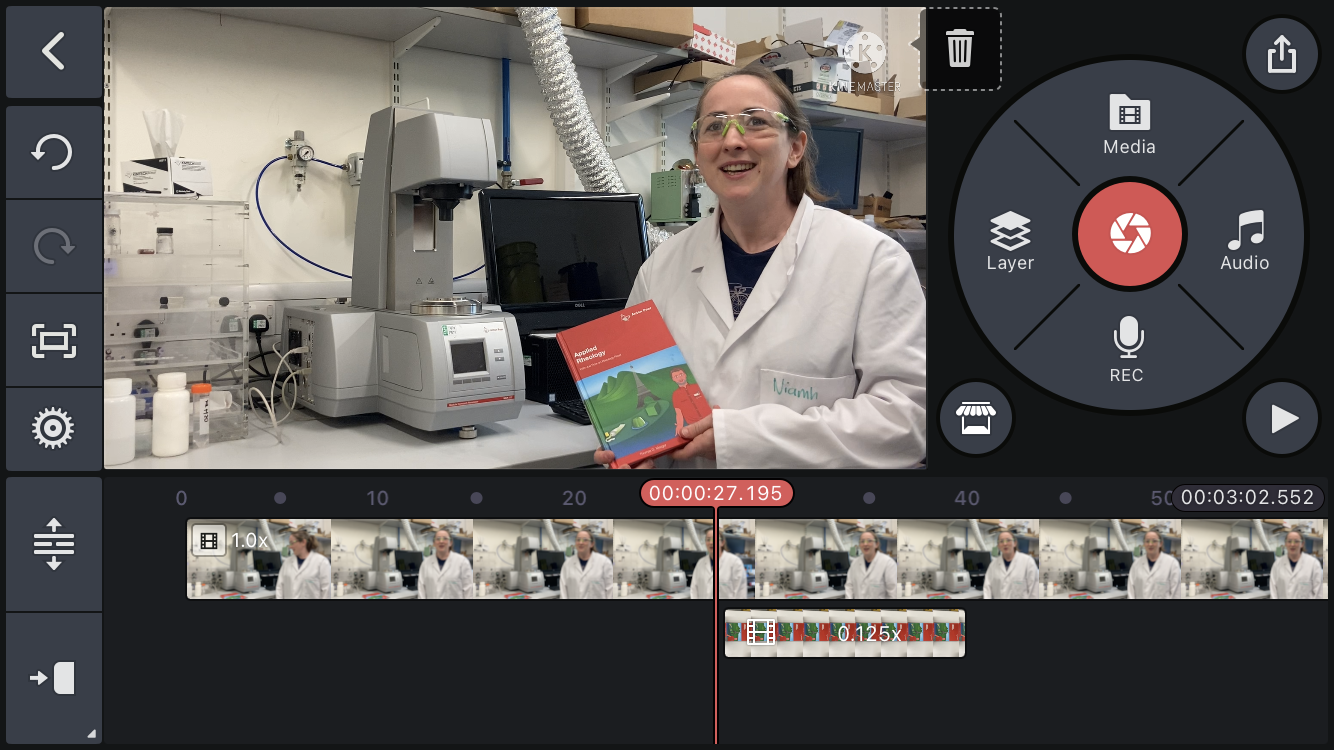Video Impact – Reflections of a Postdoctoral Researcher (Part 1)

Dr Niamh Fox participated in the Video Impact workshop hosted by C-DICE in May 2022.
The impact of Covid over the last few years has hit all aspects of my work and one of the less visible issues relates to reduced opportunities for face-to-face public engagement. Events have moved online and for me this highlighted a clear gap in my skills. The presentations that I once would have relied heavily on to engage with audiences and talk about my work did not have the same impact. Looking at videos circulating on social media I knew it was possible to produce eye catching and interesting videos, so I was delighted to come across the Video Impact training programme offered by C-DICE. The tag line ‘Using video to communicate your research’ appealed to me immediately.
Initially, I was a little sceptical as I really had no background in making videos beyond recording presentations on Zoom. However, the introductory expression of interest session reassured me that all levels were welcome. The sessions were led by Rob Glass who is an expert in the field, having worked in broadcasting in the BBC, and has since moved into training, bringing his enthusiasm for videography as a storytelling technique to the postdoctoral researcher audience.
The Foundations workshop introduced the basics, discussing the principles of designing a video and thinking about the story you want to tell with it. It reminded me that the audience is key and that their tolerance for bad ‘video manners’ is quite low, so it is important for me to think about these when making my videos. The session offered lots of useful advice and tips to consider when embarking on the videography journey.
My skills were further developed at the Bootcamp, which challenged me to put my new skills into practice, making short videos to get to grips with the practicalities of how to shoot and edit videos in the recommended software, using a smartphone. Rob also took things a step further in the Bootcamp and I learned to add different shots and features to the video to keep the audience’s attention. Some of the language of videography was deconstructed, making these terms accessible and linked to practical application.
Finally, the Momentum workshop combined all of the skills I had learned to date and demonstrated how to put together an instructional video describing how to use a piece of equipment, in this case, the all-important coffee machine! I was so inspired by this that I am currently in the middle of putting together an instructional video for one of our pieces of equipment in the lab, both for new starters and for those in the lab that might need a refresher at any point.
The course was set up to be completely flexible with multiple dates available for each of the three sessions which meant that it was possible to fit the course in around even the heaviest of research schedules. The cherry on top is that there was a drop-in surgery at the end of the summer, to catch up and share our ongoing projects with each other. I found the drop-in session was a great motivation to work on my videos to be able to ask Rob more specific/personalised questions. This has given me the motivation to finish my instructional video and share it with Rob for feedback. My next step is to apply for the Micro-credential attached to this training programme.
In summary, I was blown-away by how accessible this training was, and I really appreciated the hands-on nature which helped me realise that the possibility of making videos to showcase my research isn’t beyond my abilities! If you get the opportunity to join the next training programme, I highly recommend it to you.
Dr Niamh Fox, Research Fellow, University of Cambridge.
Register for our April 2023 training here: